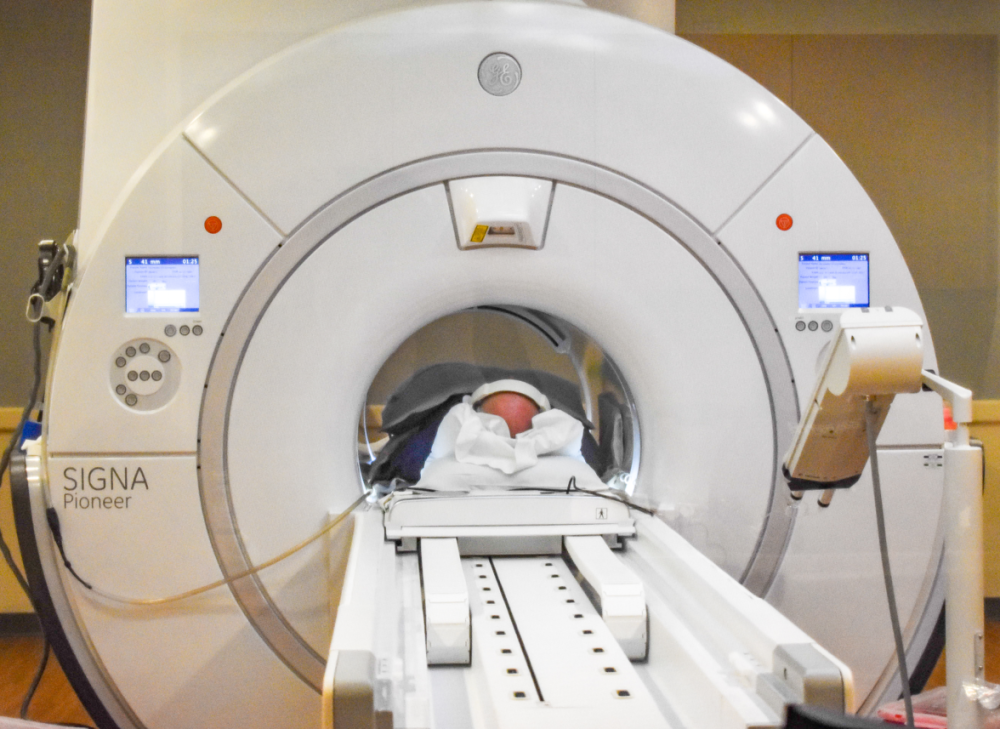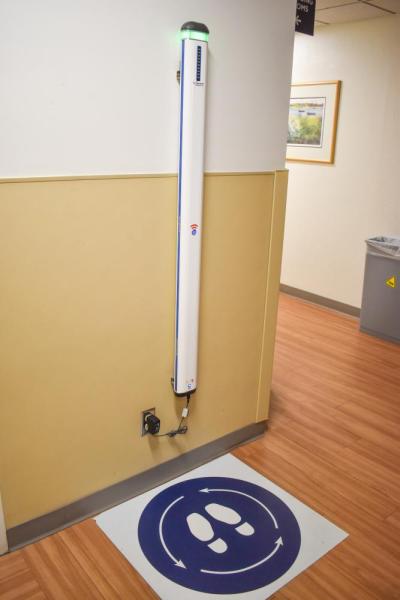‘Fastest MRI in the Northeast’: Shields MRI prioritizes patient comfort with new machine
Lying completely still inside the confines of an MRI machine, loud noise filling the space as the granulated coils vibrate, each electrical pulse creating its magnetic field — getting an MRI scan can sound and be terrifying for some patients.
Not to mention, the patients inside the contraption are awaiting possible life-altering news. An MRI is a magnetic resonance imaging machine used to take images of patients’ bodies when detecting disease, diagnosing and monitoring treatment.
The new machine Shields MRI installed approximately two years ago has drastically reduced the time patients have to spend inside, which is a benefit to the majority of patients who have said getting in the machine is the hardest part, according to Lisa Campisi, head of marketing.
The patient experience is a big part of why the facility spent over $2 million to install a “state-of-the-art Pioneer General Electric Three Tesla magnet,” according to Steve Sweriduk, MD, Shields medical director.
Now, its MRI can complete scans in 10 to 20 minutes, which is half the time it took before.
“What we strive to do here is take the best quality imaging in the shortest amount of time,” Sweriduk said, emphasizing the importance of patient care.
Shields Founder Tom Shields, Sr. would tell his employees, “Treat your patients like they’re your mother,” Sweriduk recalled. “That’s what we try to do.”
This is the third AI-enabled 3T MRI in the Shields network, with the first opening at its Framingham location in 2020 — the first machine of its kind in the world, according to Campisi.
“This machine does incredible work. It does beautiful pictures. [It’s] very quick. The resolution and the clarity of the images is quite good,” Sweriduk said.
He said reduced scan times not only benefit the patient, but also lend to better quality images as it limits the chance of any motion.
The new machine also has a wider space for the patient as the previous machine opening was only 60 centimeters. Sweriduk said this allows the patient to be more comfortable while waiting for the scan to be completed and reduces the chance of them experiencing Claustrophobia, which is the fear of confined spaces.
Leslie Clingman, chief MRI tech in Dartmouth, said the new machine also allows the technologists to be more “creative” when trying to accommodate patient limitations. For example, if a patient cannot lay flat, the coils are flexible and will allow them to sit up a bit more.
The new MRI also comes with artificial intelligence capabilities, Sweriduk said.
“It’s not the scary AI,” he joked, explaining how the artificial intelligence is used to reduce the noise in photos that make them “fuzzy.”
Before, increasing the resolution required multiple images to be taken, which meant the patient would be in the machine for longer periods of time. “We do things better than we ever did before,” he added.
For example, patients who are suspected of having prostate cancer used to go to a urologist for a blind fine-needle biopsy in which tissue would be sampled from multiple spots to see if any cancer is found, according to Sweriduk.
However, he said now patients can get an MRI scan that can indicate whether there is cancer and find an approximate location.
Sweriduk said they can then take the images and create a three-dimensional model and map out exactly where they believe the tumor is. The urologist will then combine this model with ultrasound and GPS for the biopsy.
He added these new capabilities have lent to a process that decreases the risk of bleeding and infection in patients and increases the accuracy of detecting cancer.
The new machine does come with its limitations, Sweriduk said. Due to the strong magnet, more “artifacts,” or defects, will appear on scans of patients with metal in their body, such as those with knee or hip replacements.
However, occasionally patients will come in to have their implants scanned if they are having any issues post operation, he added.
Shields partners with General Electric Healthcare as one of its show sites, for which Sweriduk said he is grateful. The partnership gives Shields access to the latest technology, such as the 3T MRI machine, as well as open communication with the company that allows them to provide feedback.
Campsis emphasized the difference the new machine has made in the lives of Shields' patients, but said its employees have also lent to that, whether by sharing kind words, providing music during the scan or holding the patient's hand.
A few years ago, Kevin Gomes, a Shields MRI technologist for 36 years, filled a closet in the waiting room with stuffed animals that patients can choose from after their scan.
She said the patient can always just bring it home to their child or grandchild, but “Kevin’s Closets” has provided many patients with comfort.
For example, one patient was experiencing migraines for over 30 years and had been trying to get an MRI for nine of those, Campisi said. The patient attempted another facility, but couldn’t go through with it because she wasn’t comfortable.
However, Campisi said with the support of Shields’ staff and the efficiency of the new machine, the patient was able to successfully complete the scan.
“Previously, people would travel into Boston to get the best,” Campisi said. “That has completely changed.”















